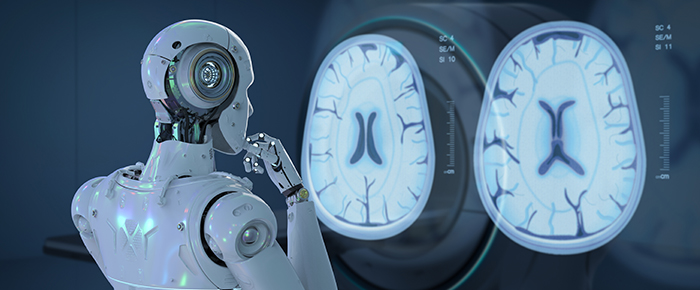
AI Powers New Advancements in Medical Diagnostics and TreatmentAI Powers New Advancements in Medical Diagnostics and Treatment The advent of artificial intelligence (AI) has revolutionized the medical industry, leading to groundbreaking advancements in both diagnostics and treatment. Diagnostics: * Image analysis: AI algorithms can analyze medical images such as X-rays, MRIs, and CT scans with unprecedented accuracy and speed. This allows for the early detection of diseases, enabling timely interventions and improving patient outcomes. * Disease prediction: AI models can analyze vast amounts of patient data, including medical records, lifestyle factors, and genetic information, to identify patterns and predict the likelihood of developing certain diseases. This enables preventive measures and personalized screening programs. * Personalized treatment: AI can tailor treatment plans to individual patients based on their unique genetic makeup, medical history, and lifestyle. This approach, known as precision medicine, leads to more effective and targeted therapies. Treatment: * Drug discovery: AI is used to accelerate the drug discovery process by analyzing vast libraries of potential compounds and predicting their efficacy and safety. This speeds up the development of new medications, bringing them to market faster. * Surgical planning: AI algorithms can assist surgeons in planning complex procedures. They can generate 3D models of anatomical structures, identify potential risks, and optimize surgical outcomes. * Robotic surgery: AI-powered robotic surgery systems offer enhanced precision, dexterity, and control. These systems enable surgeons to perform minimally invasive procedures with greater accuracy and reduced complications. Benefits of AI in Medicine: * Improved patient outcomes: Faster and more accurate diagnostics lead to earlier interventions and better treatment options. * Personalized care: AI enables tailored therapies that address individual patient needs, improving their quality of life. * Reduced medical costs: By optimizing treatment plans and preventing unnecessary procedures, AI can reduce healthcare expenses. * Enhanced accessibility: AI-powered diagnostic tools can be deployed in remote areas or underserved communities, providing access to quality medical care. * Increased efficiency: AI automates routine tasks and analyzes data faster than humans, freeing up healthcare professionals for more complex and patient-centered activities. As AI continues to advance, we can expect even more transformative advancements in medical diagnostics and treatment. These technologies hold the potential to improve the health of millions of people worldwide, revolutionize healthcare systems, and create a brighter future for medicine.
Posted inNews